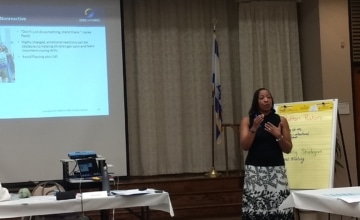In 2021, there were over 11 million infants and toddlers in the United States—equaling 3.5% of the country’s population. Almost 63% of these children had mothers who were active in the workforce. (Keating, 2021). For many young families in the United States, there are very few authentic child care options that meet child and family needs, are affordable and are local.
Approximately half of families who want to access child care find it excessively difficult or impossible to secure licensed child care (Schochet, 2019). Access to high-quality infant-toddler child care is out of reach for the 40% of babies born to households with low-income (Keating, 2021), a disproportionate number of whom are babies of color (Pizarek, 2021).
GO FCC, an FCC recruitment and retention pilot in Montgomery County, MD, recently received attention from the state legislature, prompting the introduction and passage of the Growing Family Child Care Opportunities Pilot Program in the Maryland State Department of Education. Building on the promising Montgomery County program, this bill established three pilot sites to increase FCC supply in underserved communities across the state. The multilingual program will include support for prospective providers as they navigate the regulatory process and work with organizations that support women- and minority owned businesses to help implement best business practices and achieve financial sustainability. Another program, Maryland Child Care Boost is a free, 18-month pilot program designed to help FCC programs across the state increase revenue, reduce administrative burden, and relieve some of the stresses of running a small business, while expanding their professional network through a cohort-based model. Providers receive free child care management software that eliminates paperwork, aids in collection of parent fees and attendance information, and facilitates communication with families. Providers also receive business training and small group coaching in recordkeeping, tax management, debt reduction and the on the state’s quality rating system.
To read more about state strategies to strengthen home based child care read here.




